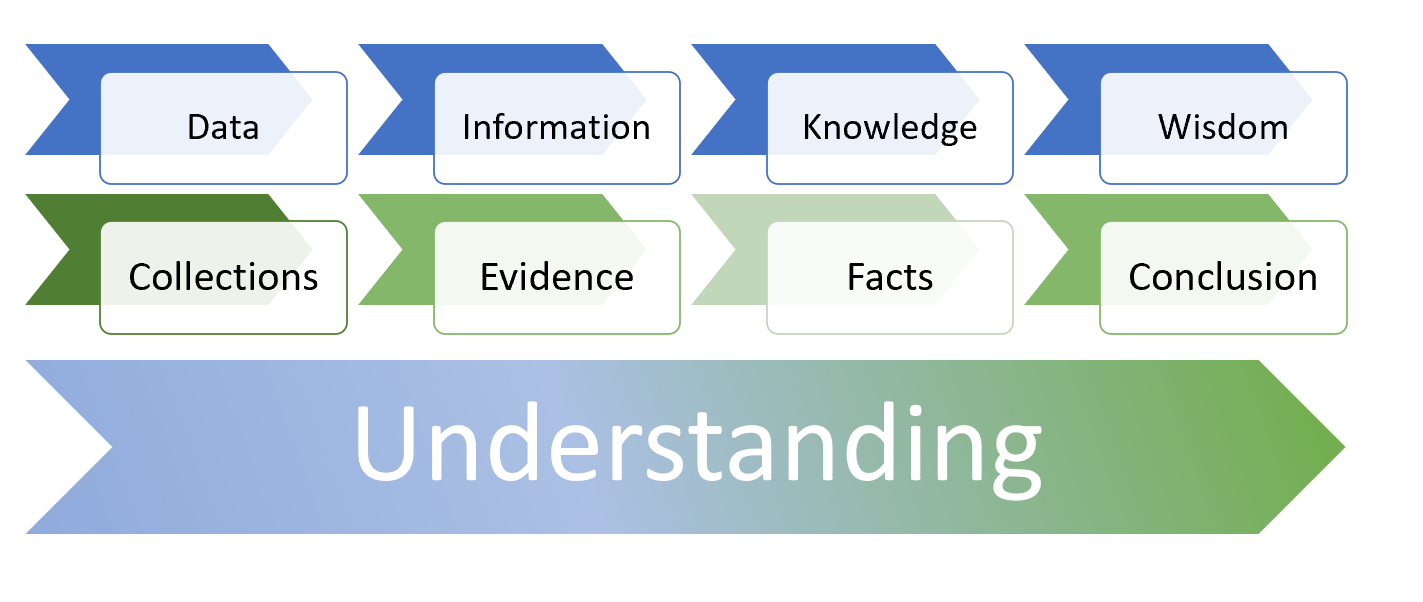Most of my eDiscovery career has revolved around architecting systems and processes required to extract ESI relevant to high risk-value incidents. In my first forensic-discovery decade I mostly did the extraction, review and testing for prosecutors or counsel. Their job was to interpret my evidence to understand the incident and make judgments on that knowledge. Keeping Found Things Found by William Jones has me thinking about the difference between information and knowledge in eDiscovery and general digital workflows. Keith Lehrer’s Theory of Knowledge (1990) has one of my favorite definitions:

Every digital professional struggles to process their daily avalanche of email, chat, news, posts and other data sources into actionable knowledge to attain outcomes aligned with their goals. Litigators and eDiscovery teams assess evidence to informed recommendations and decisions. The volume of raw custodial ESI has ballooned to make manual review unfeasible in large or complex matters. Hence the eventual legal community acceptance of PC/TAR for relevance determination. But what does that 3-5% relevant information mean? That is the next challenge for legal technology and artificial intelligence. I have always believed that the key to transforming information to actionable knowledge was putting that information into the larger context that gives it meaning. Successful investigators, counsel and analysts of all kinds can intake diverse information and mentally place it into related contextual facets such as chronology, laws, political, financial, and more. The next generation of A.I. promises better tools than whiteboards, social networks, or storyboards. Digital professionals should re-evaluate their technologies and adopt those that deliver information with useful context and potentially related data. Do you have a favorite recommender or information visualization that has impacted your daily workflow or eDiscovery analysis? Send me screenshots or links!
Greg Buckles wants your feedback, questions or project inquiries at Greg@eDJGroupInc.com. Contact him directly for a free 15 minute ‘Good Karma’ call. He solves problems and creates eDiscovery solutions for enterprise and law firm clients.
Greg’s blog perspectives are personal opinions and should not be interpreted as a professional judgment or advice. Greg is no longer a journalist and all perspectives are based on best public information. Blog content is neither approved nor reviewed by any providers prior to being published. Do you want to share your own perspective? Greg is looking for practical, professional informative perspectives free of marketing fluff, hidden agendas or personal/product bias. Outside blogs will clearly indicate the author, company and any relevant affiliations.
See Greg’s latest pic on Instagram.
